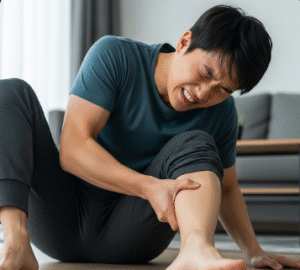Overview
Chikungunya virus infection is a mosquito-borne viral disease that causes fever, joint pain, and rash. While it is more common in tropical and subtropical regions, imported cases can occur in Korea due to international travel. Korea has advanced diagnostic and infectious disease care facilities to promptly manage and prevent complications from chikungunya infection.
What is Chikungunya Virus Infection?
Chikungunya is caused by the chikungunya virus (CHIKV), transmitted primarily by Aedes aegypti and Aedes albopictus mosquitoes. The infection is not spread from person to person but through mosquito bites. It typically results in acute febrile illness and severe joint pain that can last weeks to months.
Symptoms
- Sudden onset of high fever
- Severe joint pain, often in hands, wrists, knees, and ankles
- Muscle pain and stiffness
- Headache
- Rash (red maculopapular spots)
- Fatigue and malaise
- Nausea or vomiting in some cases
Causes
- Bite from an infected Aedes mosquito
- Rarely, mother-to-child transmission during childbirth
- Imported cases from travelers returning from endemic regions
Risk Factors
- Traveling to or living in areas where chikungunya is common (South Asia, Southeast Asia, Africa, Caribbean, South America)
- Exposure to mosquito-prone environments
- Lack of mosquito protection (nets, repellents, protective clothing)
- Weakened immune system may increase severity
Complications
- Chronic joint pain lasting months to years in some patients
- Rare neurological complications (encephalitis, neuropathy)
- Eye complications such as uveitis or retinitis
- Rare cardiovascular issues in severely ill patients
- Risk of severe disease in newborns if maternal infection occurs at delivery
Prevention
- Use mosquito repellents and protective clothing
- Install window screens and mosquito nets
- Eliminate standing water to reduce mosquito breeding
- Travelers should follow updated travel advisories
- Awareness campaigns in Korea to prevent mosquito-borne infections
Treatment Options in Korea
There is no specific antiviral treatment for chikungunya; management focuses on relieving symptoms and preventing complications:
- Supportive care:
- Pain relief with acetaminophen or NSAIDs (avoid aspirin in children)
- Rest and hydration
- Severe cases:
- Hospitalization for dehydration, severe joint pain, or neurological symptoms
- Intravenous fluids and monitoring in advanced medical centers













